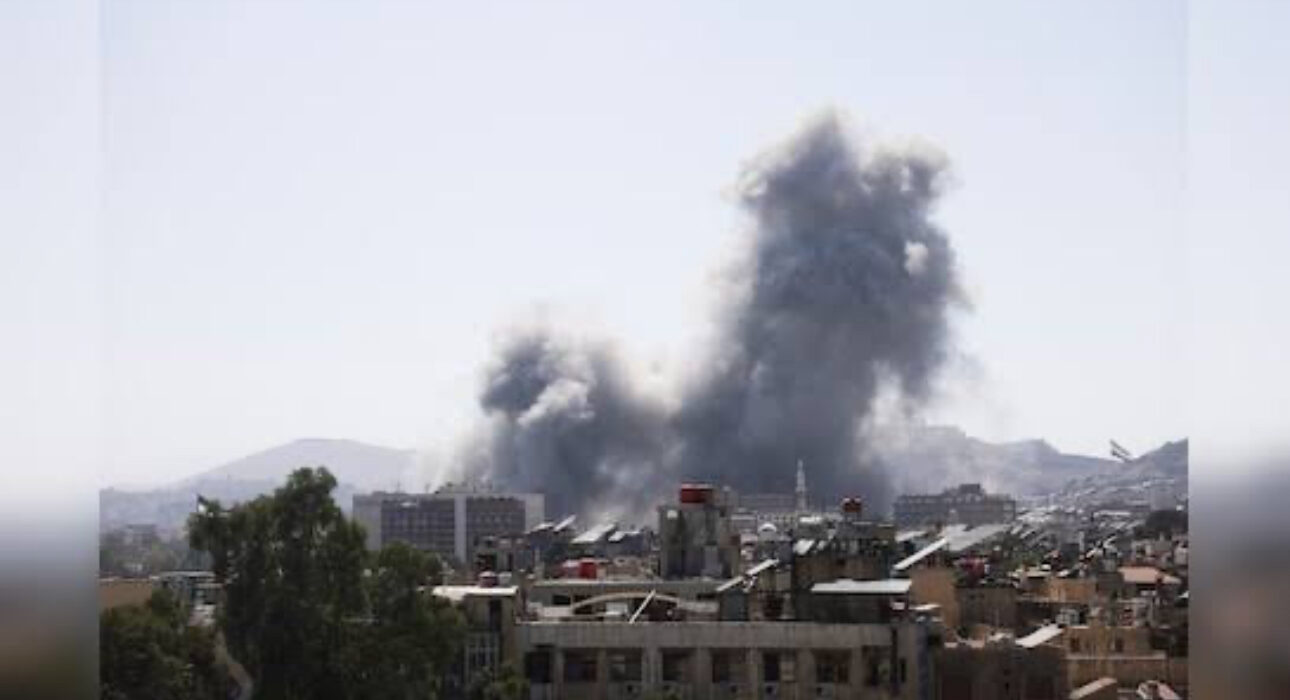Israel Bombs Syrian Military Sites Near Damascus, Cites Protection of Druze Civilians in Sweida

Tensions escalated sharply in the Middle East as Israeli warplanes launched airstrikes on key military installations in Syria’s capital, Damascus, in what was described as a targeted operation to deter government forces from advancing into southern Syria.
The strikes hit the vicinity of Syria’s Defense Ministry and areas near the presidential palace, marking one of the most direct Israeli offensives on the country’s capital in recent years.
The strikes come amid ongoing unrest in the southern Syrian province of Sweida, where intense fighting between Syrian government forces and local Druze militias has left over 250 people dead in recent days.
Israel, citing concerns for the safety of the Druze minority—many of whom have cultural and familial ties to Israel—vowed to prevent further violence against the civilian population in the region.
Israeli defense officials confirmed the strikes, stating that they were a preemptive measure aimed at halting a potential military buildup by the Syrian regime near Israel’s northern frontier.
Israeli Defense Minister warned that any attempt by Syrian forces or allied militias to transform southern Syria into a conflict zone would be met with force.
He emphasized that the protection of Druze communities across the border was a matter of national interest.
Witnesses in Damascus reported loud explosions late into the night, with plumes of smoke rising from areas around the defense headquarters and security installations close to the presidential palace. At least one person was confirmed dead and over a dozen others wounded, according to medical sources and Syrian media. The extent of the damage to military infrastructure remains unclear, though reports suggest significant structural impact.
The violence in Sweida, a predominantly Druze area that had previously remained relatively insulated from Syria’s broader civil conflict, erupted following disputes between local Druze factions and government-aligned Bedouin militias.
The Syrian army’s response, described by activists as heavy-handed and indiscriminate, prompted widespread backlash and calls for international intervention.
As the situation deteriorated, hundreds of Druze citizens in Israel attempted to cross into Syria to support their relatives, further intensifying the regional stakes.
Israeli authorities have since intervened to prevent the cross-border movement while reaffirming support for diplomatic and humanitarian efforts to stabilize the area.
International observers have expressed concern over the potential for the crisis to expand. The United Nations Security Council is expected to convene an emergency session to address the conflict, while Western nations, including the United States and European Union, have called for restraint from all parties and the protection of civilians.
The Israeli airstrikes on Damascus signal a growing willingness by Tel Aviv to assert its military presence deep inside Syrian territory when it believes civilian lives—especially those linked to Israel’s minority groups—are at risk.
With the situation in Sweida still fluid and no permanent ceasefire in place, the region braces for further developments in what is quickly becoming one of the most dangerous escalations in recent years.









